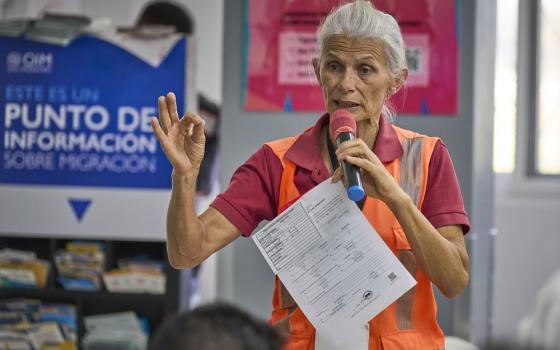If there are Christians anywhere who don't practice faith in a cafeteria style, I've yet to meet them. Picking and choosing, either in whole categories or by degrees of emphasis, are our common lot in my reckoning. So it makes sense that we'd find that trait in Pope Francis. He doesn't disappoint us.
He displays this by hard selling his passionate concerns and soft-pedaling or by-passing others. Two glaring evasions illustrate the point. One was his dismissal of attacks on homosexuals with his brilliant "who am I to judge?" response which neither endorsed or overruled Catholic teaching but effectively removed him from the discussion for now at least. The other occasion took place only days ago when he implied that the church's refusal to accept condoms as a form of AIDS prevention was no big deal compared to the horrors of mass human deprivation.
Condoms and the AIDS crisis might be a fit topic after these other causes of devastation had been dealt with, the pope said, but it would have to wait, and maybe even then it wouldn't claim priority. It was, quite frankly, a shocking reply. Like everyone else, the pope cannot pay attention to everything at all times, and by nature has his own ranking of those crises that warrant emergency action. But demoting a matter so critical to a horrifying world epidemic appears out of character for him, suggesting a disengenuous effort to preserve the church's controversial teaching. If he believes the church is right, why not just say so? Or was he trying to sidestep the hard reality of actual reform?
Conservatives are no happier than reformers, of course, as the pope's ambiguities, while not proposing anything concrete, nonetheless stir fears that dangers lie ahead. The chatter around granting communion to non-annulled divorced Catholics ran along similar lines, except that the pope has been reliably reported as having done it himself while archbishop of Buenos Aires.
Likewise, Francis appeared to welcome Lutheran clergy to communion in a public interfaith worship service. The argument ensued: was he or wasn't he violating Catholic doctrine? His words denoted his gregarious, gracious self but provided no real guidance. The intercommunion appeared to be the lesser thing in service of the greater spirit, but again, no clear guideline emerged.
From his indirection and pregnant gestures, his legacy is likely to uphold him as the pope of conscience,leaving others to draw inferences from his signs and intimations. Rather than change the rules, he is showing a pattern whereby he tamps down the significance of certain combative issues -- they're no big deal -- while hoping Catholics will take the hint with more and more leaving them off the list of cafeteria favorites. Over the long run, change would presumably happen. It's one meatloaf-special-of-the-day kind of risk.



